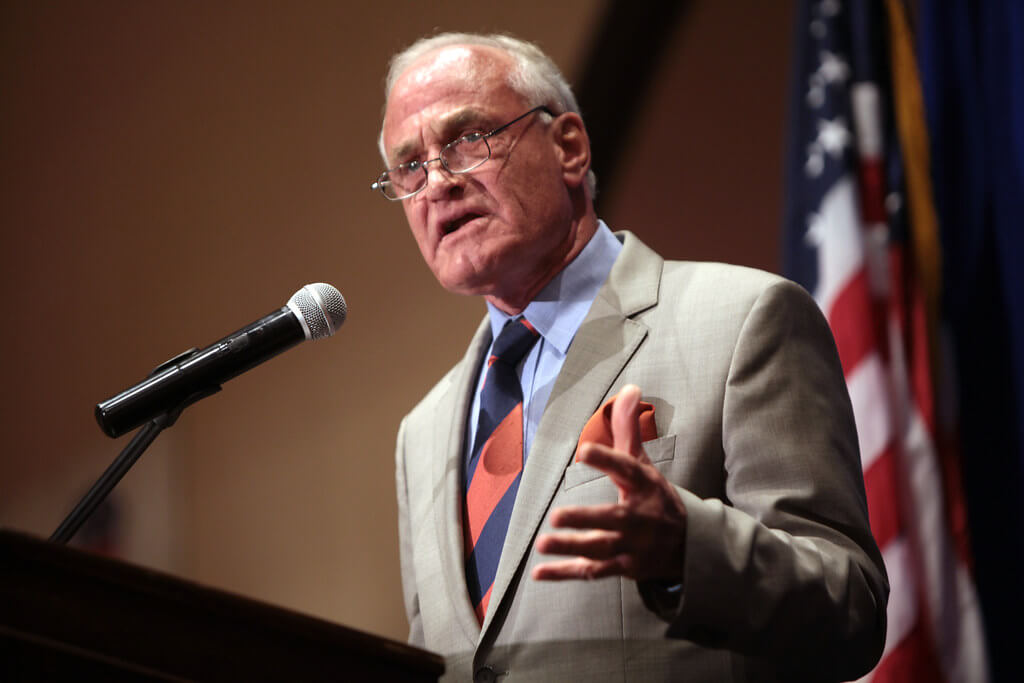The Conscience of a Conservative by Barry Goldwater: A Profound Manifesto
“The Conscience of a Conservative” by Barry Goldwater has been a significant book in American politics since its publication in 1960. Goldwater’s ideas have helped shape the principles of conservatism and inspired contemporary political commentary. The book emphasizes conservative principles, particularly freedom, self-reliance, and individualism. Goldwater’s concept of conservatism also places great importance on the laws and truths of God.
Goldwater was a Republican senator from Arizona and a presidential candidate in 1964. He campaigned for a government that played a minimal role in people’s lives and championed individual freedoms. He was a strong proponent of states’ rights and pushed for a limited federal government. The book’s influence on American politics has been profound, and its ideas continue to inspire conservative leaders to this day.
In this article, we will explore the ideas presented in “The Conscience of a Conservative” and their impact on American politics. We will also examine Goldwater’s views on education, income taxation, civil rights, foreign policy, and communism. Finally, we will look at the book’s influence on conservative policies and the Republican Party.

The Ideas Presented in “The Conscience of a Conservative”
The Significance of Conservative Principles
Barry Goldwater’s book, “The Conscience of a Conservative”, emphasizes the importance of conservative principles, particularly freedom, self-reliance, and individualism. Goldwater believed that individuals should be free to make their own choices and not be hindered by government intervention. His concept of conservatism also places great importance on the laws and truths of God. “Press Princeton”
Freedom
Goldwater believed that freedom was the cornerstone of democracy. He believed that the government should play a minimal role in people’s lives and that individuals should be free to pursue their own interests without interference. He argued that government intervention stifled individual creativity and initiative. “Press Princeton”
Self-reliance
Goldwater believed that individuals should be responsible for their own lives. He argued that the government should not be responsible for providing welfare or other forms of assistance. He believed that self-reliance was essential to a prosperous and flourishing society. “Goodreads”
Individualism
Goldwater believed that individuals had unique talents and abilities that should be celebrated. He argued that the government should not impose a one-size-fits-all approach to policy. He believed that individuals should be free to pursue their own interests and not be hindered by government regulations. “Blinkist”
The Importance of God
Goldwater’s concept of conservatism places great importance on the laws and truths of God. He believed that morality and ethics were essential to a healthy society. “Press Princeton”
Laws of God
Goldwater believed that the laws of God were essential to a just society. He argued that individuals should follow moral and ethical principles in their daily lives. He believed that the government should not impose morality on individuals but should instead promote a culture of responsibility and self-reliance. “Press Princeton”
Truths of God
Goldwater believed that the truths of God were essential to a flourishing society. He believed that individuals should strive to live according to these truths and that the government should promote a culture of virtue and excellence. “Press Princeton”
The Role of Government
Goldwater’s concept of conservatism emphasizes the importance of a limited federal government and localized governing.
Limited Federal Government
Goldwater believed that the federal government should play a minimal role in people’s lives. He argued that states and individuals should have more control over their own affairs. He believed that the federal government should only be responsible for national defense, foreign policy, and protecting individual rights. “Press Princeton”
Localized Governing
Goldwater believed that local governments were better suited to governing than the federal government. He argued that local governments were more in touch with the needs of their constituents and were more responsive to their concerns. “Wikipedia”
Opposition to Federal Civil Rights Legislation
Goldwater opposed federal civil rights legislation, arguing that civil rights should be governed on the local and state level. He believed that the federal government should not interfere with the affairs of states and that states were better equipped to deal with issues of discrimination. “Goodreads”
In the next section, we will examine Goldwater’s views on education and income taxation.

Goldwater’s Views on Education and Income Taxation
Goldwater’s book, “The Conscience of a Conservative”, covers a wide range of topics, including education and income taxation. In this section, we will examine Goldwater’s views on these issues and their relevance today.
Education
Goldwater believed that education should be the responsibility of parents and local communities, not the federal government. He argued that the federal government had no constitutional authority to involve itself in education. Goldwater also believed that education should be focused on teaching students the basics, such as reading, writing, and arithmetic. He believed that the federal government’s involvement in education led to a decline in academic standards.
Income Taxation
Goldwater was a strong proponent of reducing income taxation. He believed that high taxes stifled economic growth and individual freedom. Goldwater argued that the government should not use the tax code to redistribute wealth. Instead, he believed that individuals should be free to keep the fruits of their labor and that the government should play a minimal role in their lives.
Goldwater also believed that the tax code should be simplified. He argued that the current tax code was too complex and that it favored the wealthy and well-connected. He proposed a flat tax, which would eliminate most deductions and exemptions and create a simple, fair tax system.
Relevance Today
Goldwater’s views on education and income taxation continue to be relevant today. Many conservatives believe that the federal government’s involvement in education has led to a decline in academic standards and that parents and local communities should have more control over education policy.
Similarly, many conservatives believe that high taxes and complex tax codes stifle economic growth and individual freedom. They argue that a simpler, fairer tax system would benefit all Americans, not just the wealthy and well-connected.
In the next section, we will examine Goldwater’s views on civil rights and their impact on American politics.

Goldwater’s Views on Civil Rights and Their Impact on American Politics
Barry Goldwater’s book, “The Conscience of a Conservative”, stirred controversy with his views on civil rights. In this section, we will examine Goldwater’s views on civil rights and their impact on American politics.
Opposition to Federal Civil Rights Legislation
Goldwater opposed federal civil rights legislation, arguing that civil rights should be governed on the local and state level. He believed that the federal government should not interfere with the affairs of states and that states were better equipped to deal with issues of discrimination. “Goodreads”
Goldwater’s opposition to federal civil rights legislation was controversial at the time. Many civil rights leaders saw it as a betrayal of the movement. However, Goldwater argued that his views were consistent with his belief in limited government and states’ rights.
Impact on American Politics
Goldwater’s views on civil rights had a significant impact on American politics. His opposition to federal civil rights legislation helped to solidify the South as a stronghold for the Republican Party. “Goodreads”
Goldwater’s candidacy in the 1964 presidential election also marked a turning point in American politics. Although Goldwater lost the election in a landslide, his campaign energized a new generation of conservative activists. Goldwater’s campaign laid the groundwork for the conservative movement that would rise to prominence in the 1980s under Ronald Reagan.
Foreshadowing of Republican Foreign Policy
Goldwater’s book also contains a chapter on communism that foreshadows Republican foreign policy today. Goldwater argued that communism posed a threat to American values and that the United States should take a strong stance against it. This view would become a cornerstone of Republican foreign policy in the decades to come.
Goldwater’s book remains a significant statement of American conservative ideas. It continues to inspire contemporary political commentary and serves as a reminder of the enduring importance of conservative principles.

The Legacy of “The Conscience of a Conservative”
Barry Goldwater’s book, “The Conscience of a Conservative”, has had a lasting impact on American politics. In this section, we will examine the legacy of Goldwater’s book.
Influence on Conservative Politics
“The Conscience of a Conservative” is considered a significant statement of American conservative ideas. It continues to inspire contemporary political commentary and serves as a reminder of the enduring importance of conservative principles. “Wikipedia”
Many of the ideas presented in Goldwater’s book have become central to conservative politics. Goldwater’s emphasis on limited government, individual freedom, and states’ rights continues to be a cornerstone of conservative philosophy.
Influence on the Republican Party
Goldwater’s candidacy in the 1964 presidential election marked a turning point in American politics. Although Goldwater lost the election in a landslide, his campaign energized a new generation of conservative activists. Goldwater’s campaign laid the groundwork for the conservative movement that would rise to prominence in the 1980s under Ronald Reagan. “Goodreads”
Goldwater’s book also helped to solidify the South as a stronghold for the Republican Party. Many Southern Democrats switched to the Republican Party as a result of Goldwater’s opposition to federal civil rights legislation.
Enduring Relevance
“The Conscience of a Conservative” continues to be relevant today. Many of the issues that Goldwater addressed in his book, such as limited government, individual freedom, and states’ rights, are still debated in American politics.
Goldwater’s views on civil rights and foreign policy also continue to be influential. Goldwater’s opposition to federal civil rights legislation helped to shape the Republican Party’s stance on civil rights, while his views on communism foreshadowed Republican foreign policy in the decades to come.
Final Thoughts
“The Conscience of a Conservative” remains a powerful and influential book. Goldwater’s emphasis on limited government, individual freedom, and states’ rights continues to be a cornerstone of conservative philosophy. His book serves as a reminder of the enduring importance of these principles and their relevance to American politics today.
Criticisms of “The Conscience of a Conservative”
While “The Conscience of a Conservative” has had a lasting impact on American politics, it has also faced criticism from a variety of sources. In this section, we will examine some of the criticisms of Goldwater’s book.
Ignoring the Role of Government
One of the main criticisms of “The Conscience of a Conservative” is that it ignores the role of government in promoting the general welfare. Critics argue that Goldwater’s emphasis on limited government and individual freedom fails to take into account the ways in which government can help to ensure the well-being of all citizens.
Overemphasis on States’ Rights
Another criticism of Goldwater’s book is that it places too much emphasis on states’ rights. Critics argue that this emphasis can lead to a lack of consistency in policies across different states. They also argue that states’ rights can be used as a cover for discrimination and other forms of injustice.
Lack of Nuance on Civil Rights
Goldwater’s opposition to federal civil rights legislation has also faced criticism. Critics argue that his views on civil rights were too simplistic and failed to take into account the ways in which discrimination can be ingrained in social structures. They also argue that his opposition to federal civil rights legislation ignored the fact that local and state governments had often failed to protect the rights of minority groups.
Conclusion
While “The Conscience of a Conservative” has faced criticism, it remains a significant statement of American conservative ideas. Goldwater’s emphasis on limited government, individual freedom, and states’ rights continues to be a cornerstone of conservative philosophy.

“The Conscience of a Conservative” by Barry Goldwater is a powerful and influential book that has had a lasting impact on American politics. Goldwater’s emphasis on limited government, individual freedom, and states’ rights continues to be a cornerstone of conservative philosophy.
While the book has faced criticism, it remains a significant statement of American conservative ideas. Goldwater’s views on civil rights and foreign policy also continue to be influential.
We hope you have enjoyed this overview of “The Conscience of a Conservative” and its impact on American politics. Check out our website for more great content on politics, history, and culture.
Frequently Asked Questions
Who is Barry Goldwater and what is “The Conscience of a Conservative”?
Barry Goldwater was a conservative politician who wrote “The Conscience of a Conservative”, a book that promotes limited government and individual freedom.
How did “The Conscience of a Conservative” influence American politics?
“The Conscience of a Conservative” energized a new generation of conservative activists and helped to solidify the South as a stronghold for the Republican Party.
What are the criticisms of “The Conscience of a Conservative”?
Critics argue that Goldwater’s emphasis on limited government and individual freedom fails to take into account the ways in which government can help to ensure the well-being of all citizens. They also argue that his views on civil rights were too simplistic and failed to take into account the ways in which discrimination can be ingrained in social structures.
How has “The Conscience of a Conservative” influenced conservative politics?
Goldwater’s emphasis on limited government, individual freedom, and states’ rights continues to be a cornerstone of conservative philosophy. His book has also influenced Republican policies, including opposition to centralized healthcare and preoccupation with the “deep state.”
What is the significance of “The Conscience of a Conservative” in contemporary politics?
Many of the issues that Goldwater addressed in his book, such as limited government, individual freedom, and states’ rights, are still debated in American politics. His views on civil rights and foreign policy also continue to be influential.
How does “The Conscience of a Conservative” relate to conservative philosophy?
Goldwater’s emphasis on limited government, individual freedom, and states’ rights continues to be a cornerstone of conservative philosophy. His book serves as a reminder of the enduring importance of these principles and their relevance to American politics today.
What is the enduring relevance of “The Conscience of a Conservative”?
“The Conscience of a Conservative” continues to be relevant today. Many of the issues that Goldwater addressed in his book, such as limited government, individual freedom, and states’ rights, are still debated in American politics.

